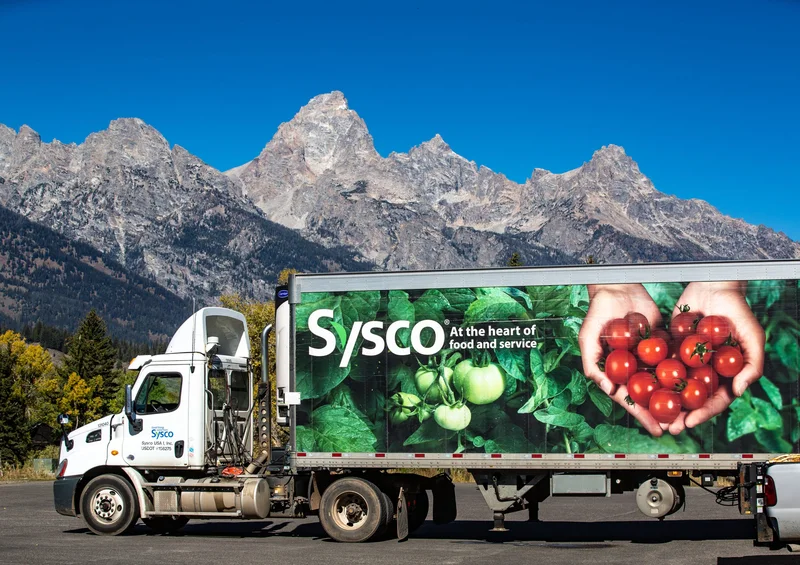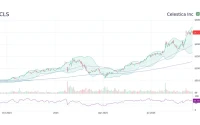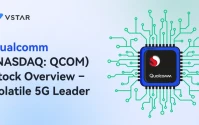A 99.5 percent vote. Let that number sink in for a moment. It’s not a rounding error. It’s not a statistical anomaly. It is a near-perfect consensus, a human signal so clear and unified that it cuts through the noise of quarterly earnings reports and stock market chatter. When I saw that the Teamsters at Sysco’s Portland hub had voted to authorize a strike by that margin, it wasn't the labor dispute that grabbed my attention. This is the kind of breakthrough that reminds me why I got into this field in the first place—it was the data point itself. It represents a powerful truth about the future we’re building: you can optimize a system to perfection, but you can never, ever remove the human variable.
What we're witnessing in Portland isn't just another contract negotiation. It's a stress test of the entire invisible, hyper-efficient nervous system that keeps our society fed. Sysco isn't just a company; it's a logistical masterpiece, an $81 billion behemoth with 337 distribution centers serving 730,000 restaurants, hospitals, and schools. Imagine it as a vast, biological network. The corporate headquarters in Houston is the brain, sending out directives. The data flowing through its systems are the electrical impulses. The trucks, warehouses, and software are the skeleton and synapses.
And the Teamsters? They are the nerve endings. They are the part of this massive organism that actually has to touch the messy, unpredictable real world. They drive the trucks through traffic, they lift the boxes in all weather, they fix the engines that break down at 3 a.m. They are the indispensable human interface between the pristine digital model and the chaotic physical reality. And right now, that interface is sending a pain signal back to the brain, loud and clear.
The Perfectly Optimized Machine
On one side of this equation, you have a machine that Wall Street adores. Sysco’s stock is solid, analysts are tripping over themselves to issue "Buy" ratings, and the company is confidently scheduling its Q1 earnings call for late October to, presumably, announce more good news. They’re plastering their logo on NASCAR race cars with Crumbl cookies, a brilliant marketing move designed to associate their brand with speed, fun, and the all-American consumer. From a 30,000-foot view, everything looks flawless. The company’s net profits jumped over 10 percent last year to nearly $2 billion. The system is working.
But is it? While institutional investors are buying up shares, a closer look at the data reveals something interesting. In the last six months, company insiders have sold shares nine times and made zero purchases. A congressman also recently sold off his stake. Now, this isn't a smoking gun, but it does raise a question: does the C-suite see a turbulence on the horizon that the market is ignoring? Do they understand that their entire, intricate system—a system that relies on just-in-time logistics, which in simpler terms means getting products where they need to be right before they're needed to minimize storage costs—is profoundly fragile?

This entire model is built on the assumption of uninterrupted flow. It’s a beautiful, elegant, and breathtakingly complex dance of data and distribution. But it has an Achilles' heel. The model assumes its human components are as predictable and compliant as a line of code. It’s a dangerous assumption, and one that is about to be tested. What happens to this perfectly calibrated, multi-billion-dollar engine when the people who turn the wrenches and grip the steering wheels decide to simply stop?
The Human Variable
On the other side, you have 270 people. Drivers, mechanics, and warehouse workers. In the grand scheme of Sysco’s 75,000 global colleagues, they are a tiny fraction. But their power isn't in their number; it's in their strategic position and their unity. This isn’t a new fight for them. The Teamsters have a playbook for this, one they used successfully in 2023 when strikes in Indianapolis and Louisville cascaded into nationwide disruptions and ended with record-breaking contracts. They know that a picket line in Portland can create logistical headaches in Phoenix.
This is the part of the equation that I find absolutely fascinating. We are living in an era of unprecedented automation and algorithmic management, where corporations are striving to squeeze every last drop of inefficiency out of their operations. Yet, the final mile, the most critical link in the chain, still relies on human skill, judgment, and endurance. The speed of this is just staggering—the pressure to optimize grows every quarter, the demand for faster delivery is relentless, and yet the fundamental work still requires a person who can navigate a loading dock in the rain or diagnose a strange noise coming from an engine.
The disconnect is jarring. While Sysco’s marketing department is celebrating a partnership with a NASCAR team, its operations department is facing a complete shutdown of a critical regional hub because it allegedly won't offer a fair contract. Are the executives in Houston so focused on their stock price and investor calls that they’ve forgotten that their entire empire is built on the physical labor of these very people? This isn't just about wages and benefits; it's a fundamental question of value. In an increasingly automated world, what is the worth of reliable, skilled, and dedicated human labor?
The Human Algorithm Always Wins
Here’s my take. Sysco’s leadership is looking at a spreadsheet. They see labor as a cost, a variable to be managed and minimized. They’re running a corporate algorithm designed for maximum profit. But that 99.5% vote? That’s the output of a different kind of algorithm. It’s a human algorithm, coded with decades of shared experience, mutual trust, and a collective understanding of what is fair. It’s an algorithm that prioritizes dignity over dividends.
And in the long run, the human algorithm always wins. You can build the most sophisticated, data-driven supply chain in the world, but if you treat its human operators as disposable parts, the entire machine will eventually grind to a halt. The real innovation, the true paradigm shift, won’t come from a better logistics software. It will come when companies finally realize that their greatest asset isn’t their distribution network or their market cap; it’s the resilient, adaptable, and irreplaceable human beings who make it all run. What’s happening in Portland is more than a labor dispute—it's a glimpse of the future.









